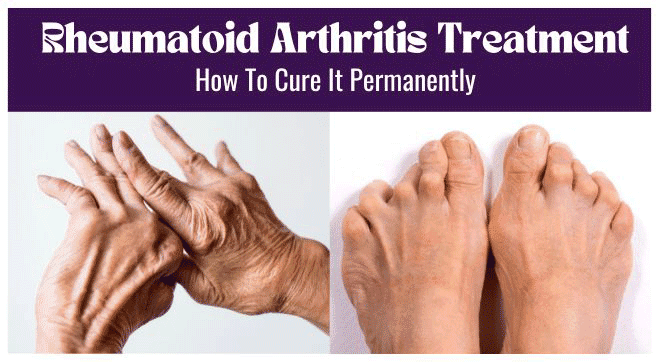Arthritis refers to stiffness, and inflammation in one or more joints in your body, which consequently leads to joint pain. As you age, your bones experience constant wear and tear, causing arthritis and allied joint complications. While this is a common occurrence for people aged above 50 years, some of you may experience an early onset of arthritis.
The type of arthritis, symptoms and causes vary individually and thus, healthcare providers often recommend a combination of treatments 1, including medication, physical therapy, weight loss, and dietary changes.
Can a Diet Help Manage Arthritis Problems?
Can an arthritis diet plan truly alleviate joint discomfort? Well, The research underscores the significance of foods that help arthritis in managing symptoms effectively. If you are diagnosed with arthritis, it is important to make the right dietary choices. This not only helps you manage your symptoms, but it also helps reduce the chances of any potential complications. By prioritizing nutrient-rich superfood choices, individuals can actively mitigate arthritis symptoms
While Some foods tend to increase inflammation, which causes the symptoms of arthritis to flare up. However, there are foods that can reduce inflammation, and relieve arthritis-related pain.
Foods That Help Arthritis
Making dietary modifications and exercising regularly can help manage your symptoms considerably. Incorporating a balanced diet rich in fruits, vegetables, lean proteins, and healthy fats may contribute to managing arthritis symptoms and improving quality of life. Let’s Explore More!
What Fruits Are Good For Arthritis?
Fruits are among the top foods to eat to help arthritis as they are rich in antioxidants, fibre, vitamins, minerals, and many other nutrients. Some of these components can lower inflammation, which is a precursor to arthritis. Fruits can also reduce the risks of heart disease and stroke.
If you have arthritis, make sure to include the following fruits in your diet:
- Cherries: Cherries have powerful anti-inflammatory properties and have antioxidant benefits. Thus, this is one of the best foods to eat to help arthritis symptoms.
- Berries: Berries like strawberries 2, blueberries 3, and raspberries are low in sugar and have a lot of vitamin C. This can help reduce inflammation.
- Grapes: Grapes 4 are extremely nutrient-dense, possess anti-inflammatory properties, and are high in antioxidants. In fact, grapes can considerably reduce CRP levels in the body. CRP is a protein that is used to measure inflammation. Thus, they should be part of an arthritis patient’s diet.
Fruits are typically thought to be healthful, however some may contain substances that exacerbate the symptoms of arthritis. Despite being high in vitamin C, citrus fruits like lemons, oranges, and grapefruits also contain citric acid, which in certain cases can exacerbate arthritic symptoms and cause inflammation and are considered the worst fruits for arthritis. Solanine, a substance found in nightshade foods like potatoes, tomatoes, peppers, eggplants, and peppers, might cause inflammation in certain people with arthritis, therefore it’s better to stay away from it.
Furthermore, overindulgence in fruits high in natural sugars, like mango and pineapple, may aggravate joint pain and inflammation. Individual reactions to these fruits can differ, though, so in order to effectively manage your arthritis symptoms, you must be aware of how your body responds to various foods and modify your diet accordingly.
Read More: Foods To Eat and Avoid for Rheumatoid Arthritis
What Are The Best Vegetables For Arthritis?
Vegetables are nutrient-dense and are, thus, some of the best foods that help arthritis symptoms. Listed below are some of the best vegetables for arthritis:
- Green leafy vegetables: Free radicals in the body are formed as a harmful by-product of energy production and metabolic reactions. These free radicals damage cells and have also been connected to rheumatoid arthritis (RA) and inflammation. Green leafy vegetables like spinach 5 and Swiss chard contain antioxidants that reduce this inflammation.
- Garlic: Garlic has numerous health benefits. A study 6 found that garlic supplements could help decrease the markers for rheumatoid arthritis and joint pain.
- Ginger: Besides being an excellent flavouring agent, ginger can also help decrease the symptoms of arthritis. Hence, it is considered a good food for arthritis pain.
- Broccoli: A study 7 indicated that broccoli could lower the markers for inflammation. This might be because these cruciferous vegetables have glucosinolates. Hence, it makes sense to include cruciferous vegetables as part of an arthritis diet.
What Vitamins, Nutrients, And Minerals Help With Arthritis Symptom Management?
Some of the vitamins and minerals that help manage the symptoms of arthritis are as follows:
- Calcium: Calcium is a vital mineral that maintains strong teeth and bones, transmits nerve impulses, and prevents osteoporosis. The latter is much more common among people who have rheumatoid arthritis, so calcium supplementation may help.
- Chromium: Chromium 8 helps maintain normal brain functioning and reduces inflammation. This can be included in your arthritis diet, after consultation with your doctor.
- Folate: Folate is a form of vitamin B9. Drugs that are prescribed for rheumatoid arthritis often destroy folate, so it may be necessary to consume this in a supplement form.
- Magnesium: Magnesium 9 is a vital mineral that aids in normal muscle and nerve function, bone health, and maintaining a healthy immune system. It can support and lower the pain and inflammation associated with arthritis.
What Are The Worst Foods For Arthritis?
While some foods can improve inflammation and help with pain management, others can worsen pain and other symptoms related to arthritis. Given this, we’ve made a list of the 12 foods to avoid with arthritis:
- Added sugars: Decreasing sugar intake 10 can be a healthy option for everyone, especially for people afflicted with arthritis. Foods and food additives such as soda, candy, ice cream, barbecue sauce, salad dressings, and ketchup are rich in added sugars. These are foods that trigger arthritis symptoms, so they are best avoided.
- Gluten-rich Foods: Gluten is a group of proteins found in wheat, barley, and other cereals. Various studies 11 have shown that gluten causes inflammation, and going gluten-free can help in alleviating arthritis symptoms. Also, keep in mind that people with celiac disease have a higher risk of being diagnosed with rheumatoid arthritis (RA) than those who don’t.
- Processed and Red Meats: Red meat and processed food may be linked to inflammation, which can worsen arthritis symptoms, according to some research 12.
- Processed Grain-Based Foods: Research 13 also indicated that fast food, breakfast cereals, baked food, refined grains, and fructose may worsen arthritis symptoms. Highly processed foods have also been shown to increase the risk of RA as well. As such, processed foods are known to worsen general health and are therefore best avoided.
- Vegetable Oils: Vegetable oils that are high in omega-6 fats while being low in omega-3 fats could worsen 14 knee pain, which is common among people who have RA or OA. Thus, they are not a recommended food for arthritis.
- Salty Foods: Foods high in salt range such as canned soup, pizza, chips, and certain cheeses are not recommended for people with arthritis. A study 15 conducted in 2015 linked high sodium intake with the risk of developing RA.
- High-Fat Dairy Products: Dairy products that have high amounts of fat, like cream, can be bad for arthritis.
- Foods That Have High AGE Content: Foods like high-protein, high-fat foods, French fries, cheese, mayonnaise, etc., have AGEs 16 that could increase oxidative stress and inflammation.
- Red Wine And Alcohol: Drinking alcohol frequently can increase the risk of being diagnosed with OA. Alcohol consumption can also increase the level 17 of uric acid in the body. This can contribute to a gout diagnosis.
- Sugary Drinks: Sugar-laden beverages can increase your risk for arthritis and is the first food to avoid when suffering from arthritis. Thus, they should be on the list of drinks/foods to avoid when suffering from arthritis.
- Coffee: It’s not certain if coffee is bad for arthritis because, on the one hand, it contains some antioxidants that can be helpful. However, people with arthritis should be careful about the caffeine content. If you enjoy consuming coffee, limit your consumption to no more than two cups a day.
- Milk: While some people do just fine with milk, others have inflammatory reactions when they drink it. If you’ve found that milk is one of the foods that trigger arthritis symptoms for you, it’s best to keep it out of your diet.
Now that you know what kinds of foods to eat and avoid for arthritis symptom reduction, let’s take a look at a sample meal plan.
Read More: Culprits in Your Diet: Foods That Worsen Arthritis Symptoms
How Does a Sample Arthritis Diet Plan Look Like?
To help you make better food choices, here is an arthritis diet chart. We’ve included foods that can help with joint pain and have kept out all the worst fruits for arthritis as well as vegetables and other food products that may make your inflammation worse.
|
Breakfast |
Snack |
Lunch |
Dinner |
|
Berry smoothie with berries, spinach, and banana |
Fruits or boiled eggs |
Quinoa and mixed vegetables rice + 1 cup low-fat curd |
Stir-fried vegetables and 1 portion of lean protein |
Here’s another variation of this diet plan:
|
Breakfast |
Snack |
Lunch |
Dinner |
|
Sprouted green gram salad |
1 cup of fruits |
Fish curry and brown rice |
Multigrain bread + vegetable curry |
Make sure to tweak this arthritis diet plan according to your needs, so you can include your favourite foods to ease arthritis.
What Else Can You Do To Manage Arthritis?
The easiest way to manage the symptoms is by making a list of foods to avoid when having arthritis and keeping them out of your diet. Apart from following an anti-inflammatory diet for arthritis, here are a few things you can do:
- Be physically active: Being physically active can greatly reduce arthritic pain, and improve bodily functions, and your overall quality of life. Physical activity can also improve your bone health, brain functioning, and weight management. If you’re unsure how to start, consult your doctor.
- Do the necessary tests: You can also book tests like the Arthritis Panel Test or RA Factor Test, which can help diagnose arthritis. Doing this can help your doctor prescribe appropriate treatment.
Maintain a healthy weight: Following an arthritis home remedy diet, which includes the right foods, can help you manage your weight and lessen stress on the joints. Even a reduction of 5 kg in body weight can considerably improve the physical functions of people with arthritis. Arthritis-friendly activities as recommended by your doctor are of paramount importance, and you should stick to the routine of performing these activities faithfully.
Disclaimer
The information listed here is strictly for educational purposes and is not intended to offer personal medical advice. Do consult your physician for any questions you may have regarding a medical condition. It’s not advised to disregard professional medical advice or delay in seeking it because of any information listed here. The Nutrition Source does not recommend or endorse any products.
Sources
Ref Links:
- FAQs about Arthritis- CDC
- Strawberries Improve Pain and Inflammation- NLM
- Blueberries Improve Pain, Gait Performance- NLM
- Effects of grape products on inflammation and oxidative stress- Pub Med
- Functional properties of spinach- Pub Med
- The effects of garlic supplementation on inflammatory biomarkers- Pub Med
- Cruciferous vegetable intake is inversely correlated with circulating levels- Pub Med
- rheumatoid arthritis through up-regulation- NLM
- Magnesium in joint health and osteoarthritis- Pub Med
- Diet and Rheumatoid Arthritis Symptoms- NLM
- Role of Diet in Influencing Rheumatoid Arthritis Disease- NLM
- Diet and Rheumatoid Arthritis Symptoms- NLM
- Low-Grade Inflammation and Ultra-Processed Foods- NLM
- Omega-6- NLM
- High Sodium Intake Is Associated With Self-Reported Rheumatoid Arthritis- NLM
- Dietary Advanced Glycation End Products- NLM
- Gout- NLM









